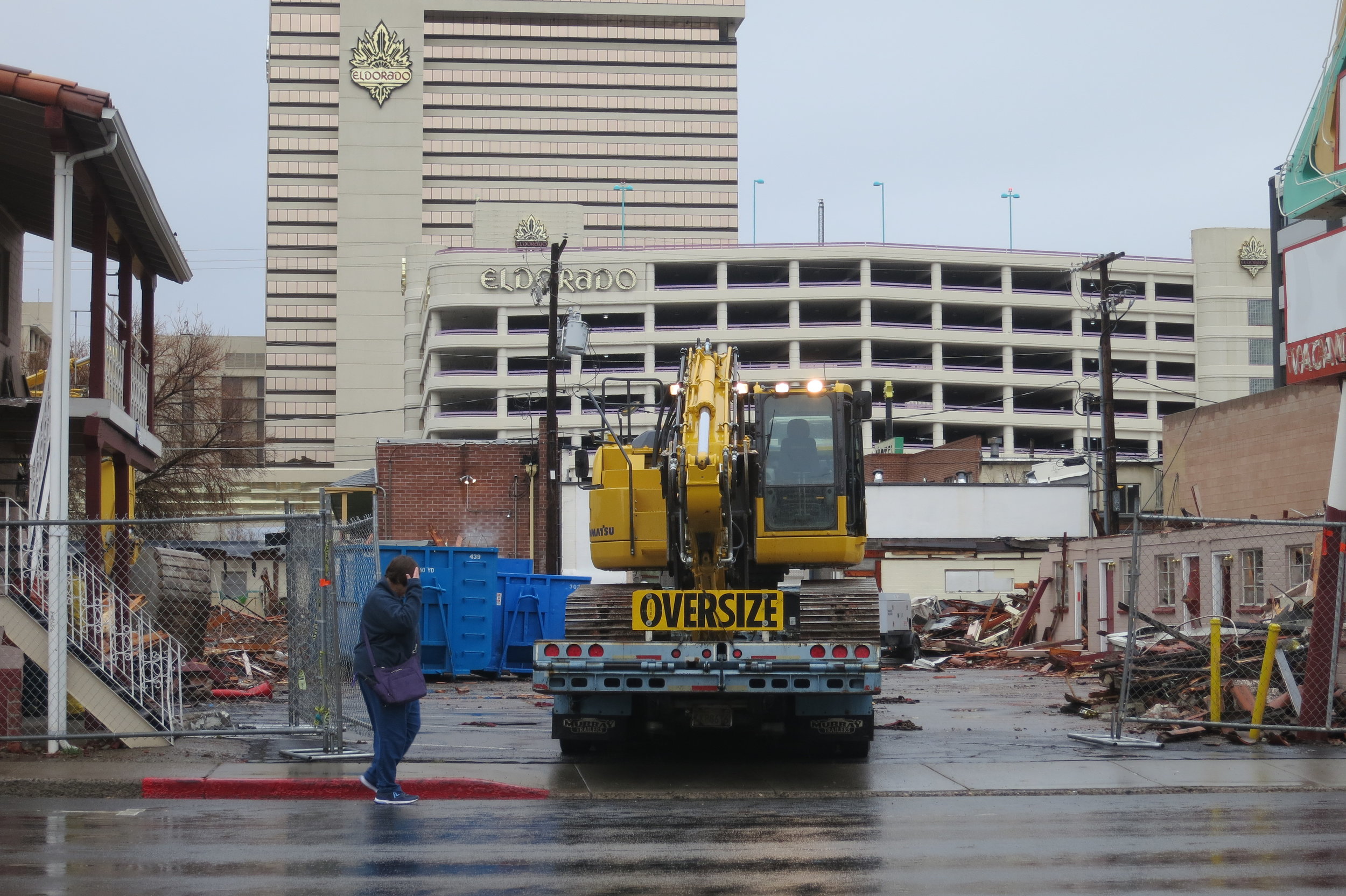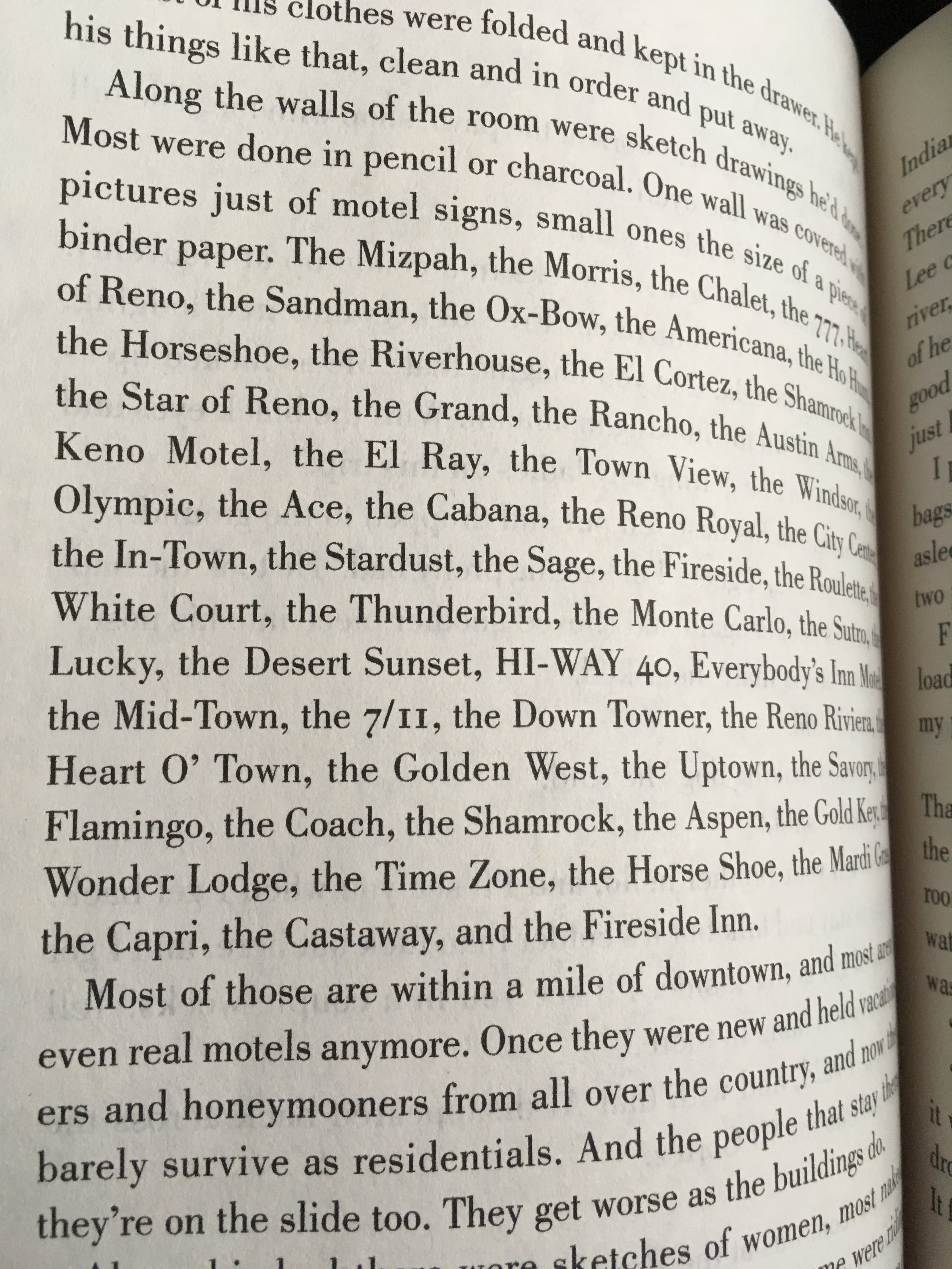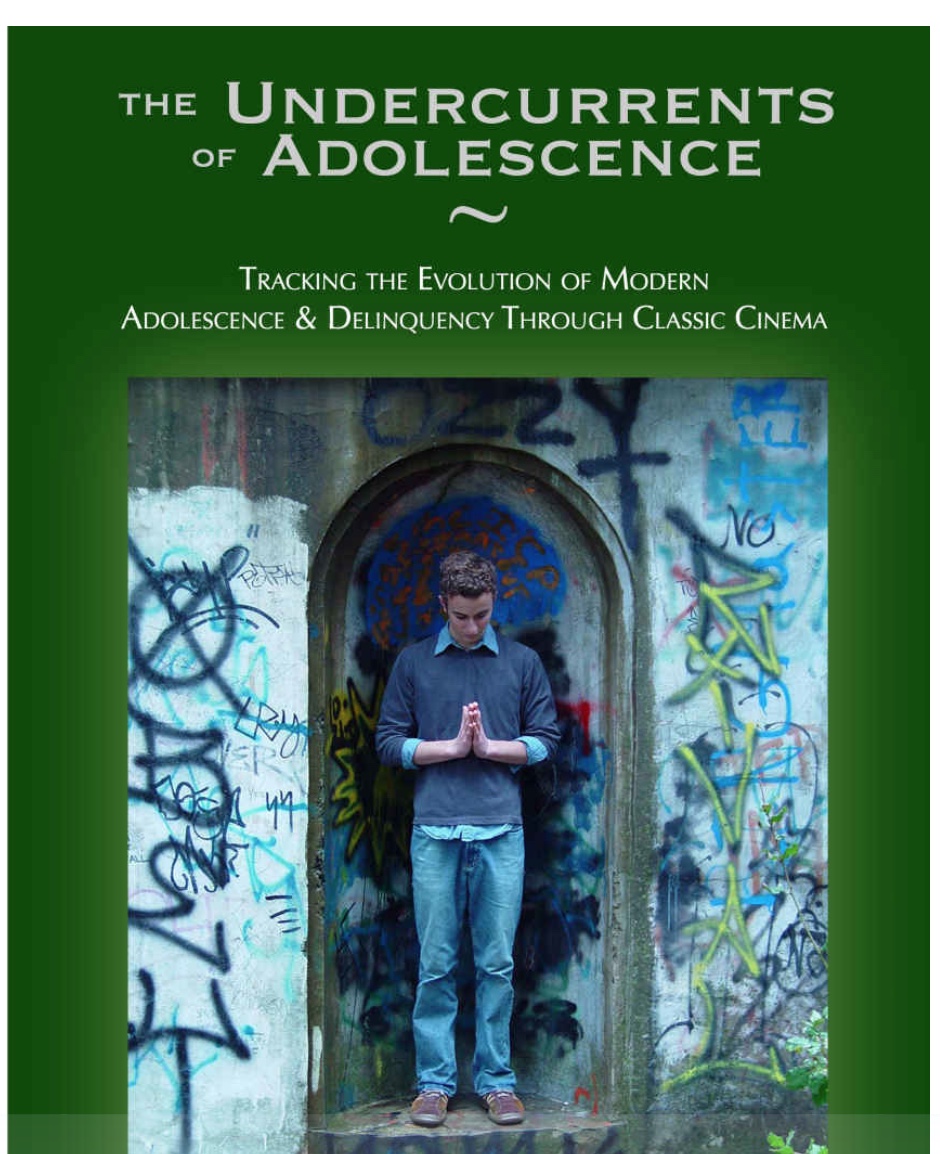Still in Need of Final Votes and Money
The money or promised in-kind help isn't all there yet, and the final vote hasn't taken place at City Council, but Pfrommer is confident the Foundation's 200-unit dormitory plan, praised in local media and on national blogs, will go from prefabricated dorms typically used by miners in Wyoming where they would be bought, to the Sage Street site, cornered by salvage junkyards, train tracks and the highway.
"Our timeline is really probably four to five months to really tackle most of this monetarily," Pfrommer said at the Community Foundation's downtown office this morning. "I think through our connections with the various philanthropic work that the Community Foundation is involved in, unrelated to this project, it will bode well and provide a lot of goodwill and assuredness to the community to step up and participate, given our track record."
Pfrommer says the Foundation still needs to raise an estimated $3.2 million, "but that's before taking into account the current campaign to have essentially donated services and products from various subcontractors on the project. So it's a moving target. We hope it's a lot lower as more and more developers step up to the plate to help out the community," he said.
He's also looking for big individual donors. "While we certainly would love to have, you know, thousand-dollar donations, most of these are going to be pretty good sized and so we're hoping to engage more and more people in philanthropy," he said.
There have been concerns over environmental issues from past use at the Sage Street site, to which Pfrommer responded: "There's been a phase one that's been done in our understanding from the engineer who's contributing his services, that it's just the typical underground storage tank, but with no leakage or any of those issues. So it's going to be remediated with very little issues," he said.
Minimum Income Needed and Other Requirements
The rent for the single bunk bed units is being planned at $390 a month, for those with an income of at least $1,300 a month, who must also pass other requirements.
"There is going to be a criminal background check, and drug testing, that type of thing. So I think that will set the criteria for the type of person that comes in," Pfrommer said. "So it's not somebody who is not working who will qualify for this honestly. And that's a different population. This is a niche, I suppose it's one rung up from the shelter ... but it's not going to be for somebody who's not working at all. This is really meant for the working poor to give them a hand up so they can get stabilized," he said.
A few small family units are being planned, but Pfrommer said it would be mostly for one person occupancies. He also wanted to make clear this would be different than a tiny home village.
"Tiny homes, even though they're tiny, they are self contained in the sense they have a bathroom and some limited kitchen facilities. So the dorm really does distinguish itself from the tiny home in the sense that it's like a dorm where the bathrooms are down the hall. It's a communal kitchen across a walkway. So it is different from the tiny homes. And honestly that's what makes this housing affordable is to have something like this set up where it's not like a tiny home. It's not like typical low income housing. But then again, the rent's only $390."
The detailed drawings for the planned dorm can be found here: https://nevadafund.org/dorms-sage-street-envision-realty/ "The feedback we've received is overwhelmingly positive," Tscheekar said. "People know that this isn't going to solve our housing crisis, but it is going to supply a big inventory of units. We're anticipating 200 units that would truly be affordable. So this is really the only project right now that is developing that if you are making minimum wage, you would be able to afford a safe and dry home."
Volunteers of America in Charge and Support from Other Organizations
Pfrommer said Volunteers of America, which runs the main shelter in downtown Reno and the overflow shelter just a few blocks away from the Community Foundation's headquarters, will be in charge of many operational components, including wraparound services.
"Volunteers of America will be responsible for operating everything above ground, including vetting the potential tenants, taking care of the property, providing the security and also coordinating social services for those people that do need a hand up."
While other organizations are working on their own 24/7 housing solutions for those they help, such as the Eddy House for at-risk youths, Tscheekar said they would be welcome to live at the dorms.
"Other organizations are supportive of the project," Tscheekar said, "so we do know that for many of the youths at the Eddy House, they may get a job or start pursuing education, but they simply can't afford a place to live. So we do anticipate that as some of the youths stabilize from receiving services at the Eddy House, that then they could move to the dorms on Sage street."
Following Other Models and Bringing Down Prices
A community land trust according to Wikipedia, "is a nonprofit corporation that develops and stewards affordable housing, community gardens, civic buildings, commercial spaces and other community assets on behalf of a community." For this purpose, the City of Reno is selling the 250 Sage street property to the non-profit philanthropic group for $1.
"We have seen other communities who have done a community land trust and this is actually the first one, at least in northern Nevada," Tscheekar said. "A few months ago, we went to the Bay Area to research some of the work that was being done there, to address gentrification and the housing crisis in San Francisco... And so we started to share this information with the City of Reno and they got very interested in the idea ultimately leading up to the recommendation that they donate the Sage Street property for this. So it's a new concept for our area, but it has been done.... If you can eliminate the cost of land automatically, that reduces the cost of housing," he said.
"We know with affordability that's a relative term," Tscheekar added, "but, what the people involved in housing consider affordable is 30 percent of your income. So if you are making $8.25 minimum wage in Nevada, that's about 26 percent of your income. So as long as you're working full-time, it is truly an affordable place to live."
Pfrommer made clear the dorms will also be available for long term rentals not just transitioning. "It's not necessarily transitional," he said. "If somebody wants to stay there for three to five years, 10 years, that's fine. It's not by definition going to be six months and you're on your own," Pfrommer said.
"I think it's fair to say too that for some of the clients at least, that they may live here temporarily until they can save up money to put a deposit or start having their own apartment for example. But then others may stay long term," Tscheekar added.
A Hoped For Thanksgiving Timeline
According to the Community Foundation's website, the first $1 million is needed no later than July 4. The money will be used to transport the modular structures from (the Afognak Native Corporation making these units typically for mining workers out of Big Piney) Wyoming to Reno, for disassembly then reassembly, utilities and hook-ups, site preparation and improvements.
"The trucking costs will be about half a million, but the disassembly in Wyoming and then the reassembly here and everything is about a million.... I mean our goal is to have these on trucks ... in July and having them set up in August, early September and then we would be up and running to start getting applications in September, October and then fill it up by Thanksgiving," Pfrommer said.
"Well we do feel confident that we can make it work," Tscheekar added. "I would say one challenge is that it is moving very rapidly and that there are so many different partners with the project, with various construction companies and other real estate developers as well. So there are a lot of caring people, but it can also be difficult to keep track of all the work that's moving so rapidly," he said.
"It's obviously great for the 200 or so people that will have (access) to the dorm village," Pfrommer concluded before getting back to work. "What I'm also excited about is the fact that it's encouraging or forcing people to think differently about how to address this (affordable housing crisis). We have always had low-income, Section 8 housing, which the groups that do that do fantastic work, but this is another way to help increase the inventory and make housing affordable for that many more people. So I'm glad it's forcing people to think outside the box."



















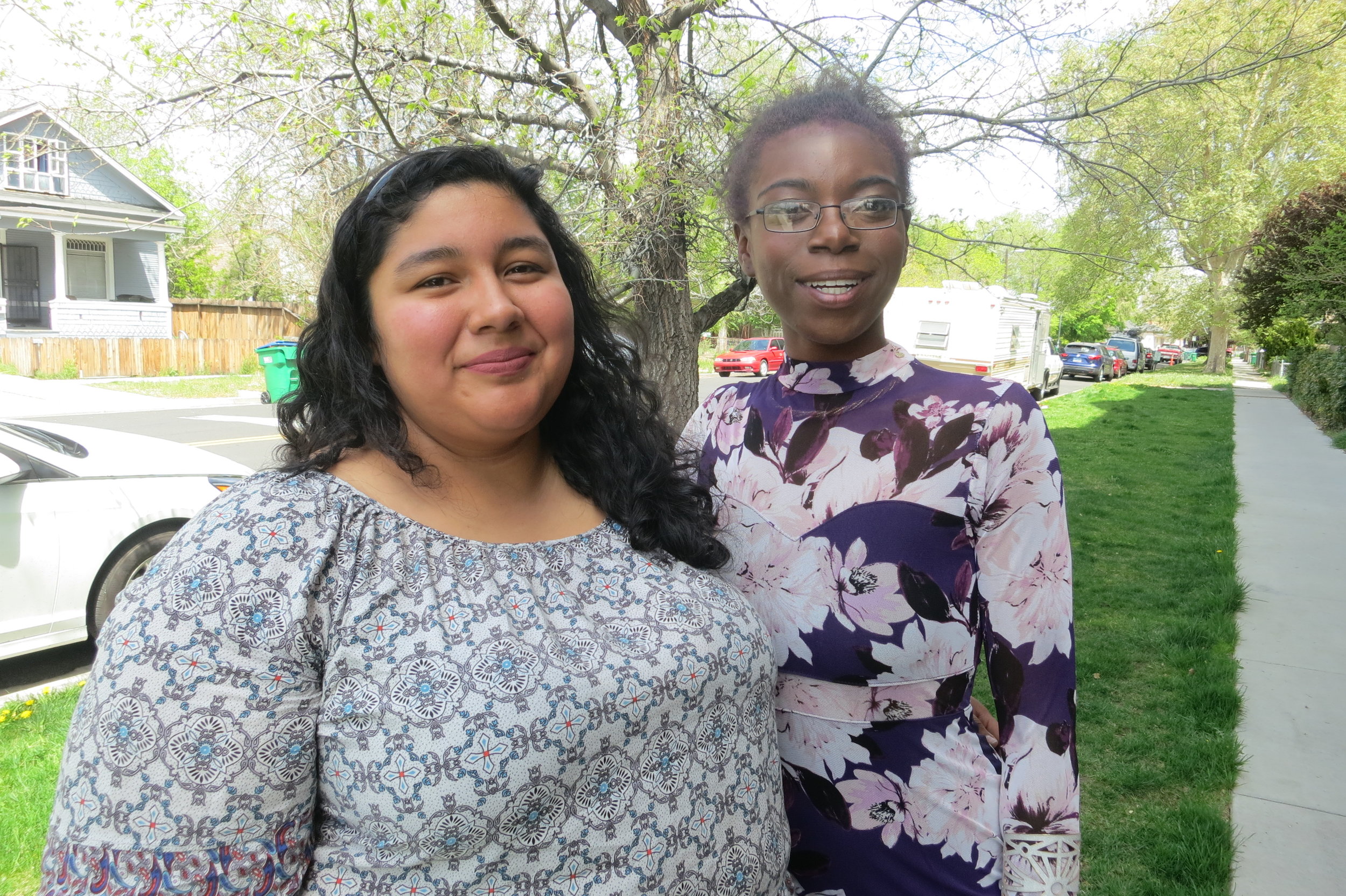














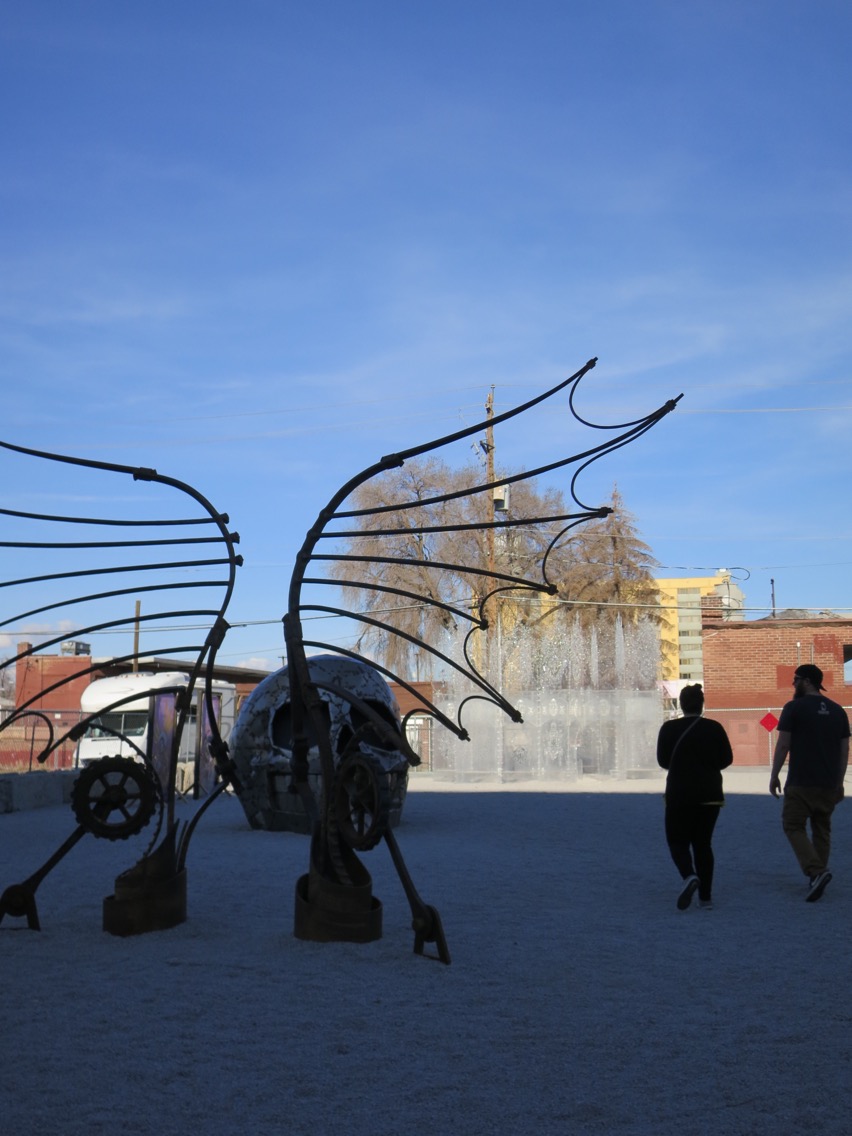
!["We’ll have to see what they do. On the one hand, I think we’re very grateful that there’s investment that’s going to be made .... (but) what the actual vision is for downtown, for their [Jacobs] downtown development, I think the jury is still …](https://images.squarespace-cdn.com/content/v1/5675d221cbced60a236e28b8/1524770483458-QUM2G52QO305ONKQCSYE/ClosedMotel.jpg)









